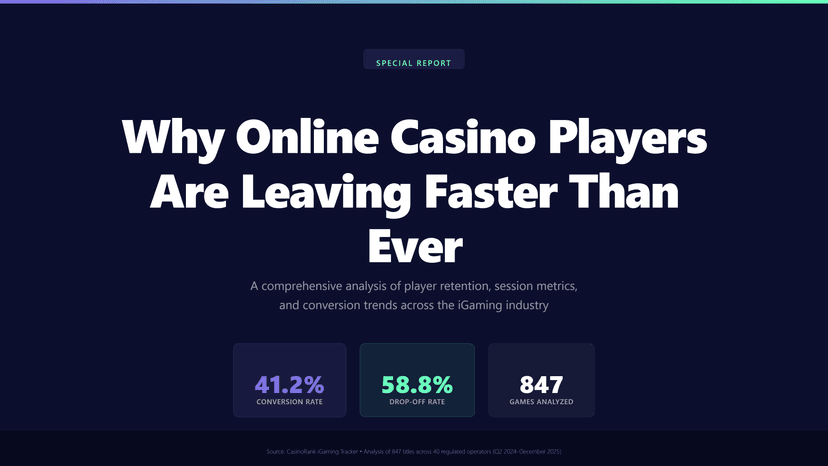How Online Gambling Became a Global Industry: From Local Halls to Virtual Casinos

Buried deep within a 5,000-year-old Egyptian tomb, archaeologists uncovered an unexpected link between past and present: polished six-sided dice—proof that the ancient world shared our modern love for games of chance. As noted in gambling.net’s “The History of Gambling,” this artifact is more than just a relic; it’s a symbol of a timeless human obsession that stretches across civilizations and centuries. From casting lots in sacred temples to tapping slots on smartphones, the evolution of gambling mirrors our unrelenting pursuit of excitement, risk, and reward.
But the journey from smoky backrooms to sleek digital platforms isn't just about tech. It’s a reflection of who we are: storytellers of chance, seekers of thrill, and adapters of tradition. Whether through clay tiles in early Chinese lotteries or the immersive allure of today’s VR casinos, each era has reshaped how we gamble—yet the core appeal remains unchanged. The game evolves; the instinct endures.
Where Did Wagering Start? A Look Back at Ancient Times
Gambling is as old as civilisation itself, with archaeological evidence revealing that games of chance were played across ancient societies worldwide. The earliest concrete proof comes from China around 2300 BC, where clay tiles appear to have been used in a rudimentary lottery-type game. This wasn't merely casual entertainment—the Chinese Han Dynasty reportedly operated a lottery known as the "white pigeon game" around 200 BC to fund state projects, possibly even contributing to the construction of the Great Wall.
The universality of gambling across ancient cultures is striking. While the Chinese were perfecting their lottery systems, ancient Egyptians were crafting those polished dice found in tombs, suggesting that even in death, they wanted to be prepared for games of chance in the afterlife. Civilisations like those in Greece and Rome embraced betting with equal enthusiasm—these cultures were avid gamblers, wagering on everything from animal races to dice throws.
Perhaps most tellingly, when Roman authorities attempted to crack down on gambling, citizens found ingenious workarounds. Romans invented the first gambling chips specifically to circumvent anti-gambling laws. When caught by authorities, they could claim they were "only playing for chips, not real money"—a legal loophole that demonstrates both the persistence of gambling's appeal and humanity's creative approach to regulation.
These early anecdotes underscore a fundamental truth: wagering on games of chance has been a universal pastime for millennia, spanning cultures from Asia to Europe. The fundamental human attraction to risk and reward has remained constant, even as the methods and technologies have evolved dramatically.
The Rise of Online Casinos in Zambia
While sports betting has gained popularity, online casino gaming (iGaming) has steadily become a significant part of digital gambling for Zambian players. Many jurisdictions globally have launched full online casino offerings, including digital slots and table games, setting a precedent for regulated online gaming.
As iGaming grows, its potential for generating revenue through taxes is becoming increasingly apparent to governments. This suggests a future where more regions, including potentially Zambia, will explore the financial benefits of regulated online casino gaming.
This higher tax yield makes regulated online casinos particularly attractive to governments looking for new revenue streams. We see this trend in many countries, indicating that Zambia may also find significant advantages in embracing this evolving sector.
When Did Gambling Go Online in Zambia?
The mid-1990s brought a technological revolution that would forever change gambling: the widespread adoption of the internet. Suddenly, betting was no longer limited by geography—anyone with a computer and modem could try their luck from anywhere in the world. This transformation didn't happen overnight; it required the convergence of legal frameworks, technological innovations, and entrepreneurial vision at just the right moment.
A pivotal moment occurred in 1994 when the Caribbean nation of Antigua and Barbuda passed the Free Trade and Processing Act, enabling companies to apply for licenses to offer online gambling. This legislation effectively created the first legal framework for online casinos to emerge, providing the regulatory foundation that the industry desperately needed.
The legal groundwork was quickly matched by technological innovation. In 1994, a software company called Microgaming, based on the Isle of Man, developed the first fully functional online gambling software platform.This was followed by another crucial development: CryptoLogic implemented secure online payment encryption, solving the critical challenge of handling real money bets safely over the internet.
With legal clearance and technology in place, the world was ready for virtual wagering. By 1996, the very first real-money online casino launched. Known as InterCasino and established using CryptoLogic's software, it is widely acknowledged as the first online casino where people could play and bet actual money on games via computer.The birth of online sports betting occurred almost simultaneously. A landmark event took place on January 17, 1996, when a small bookmaker called Intertops accepted what is regarded as the world's first online sports bet—a $50 wager on a European football match, placed by a bettor in Finland who won $2 from the bet. While the winnings were modest, the implications were enormous.
How Virtual Casinos Took Over the World
These humble beginnings quickly snowballed into something much larger. By 1997, just one year after InterCasino's launch and that first sports wager, over 200 gambling websites had sprung up to cater to the growing online audience. The convenience of playing from home, combined with a broader selection of games and access for those far from physical casinos, drove rapid adoption across the globe.
The growth was staggering. By the end of the 1990s, global online gaming revenue had already surpassed $1 billion annually—a stunning achievement for an industry that didn't exist before 1994. The internet had accomplished something that centuries of casino development couldn't: it made gambling truly accessible on a global scale.
For the first time in history, geographical boundaries became irrelevant. A player in Europe could spin the roulette wheel on a Caribbean-based casino site, or an American could place bets with a bookmaker in Costa Rica, all with a few clicks. This borderless reach represented a quantum leap from the local halls and Las Vegas strips of the past.
Redefining Gambling in the Digital Era
Throughout the 2000s and 2010s, online gambling continued to innovate and expand, cementing itself as a legitimate global industry. New technologies constantly enhanced the user experience—by 2003, the first live-dealer casino streams appeared, allowing online players to interact with real casino dealers via video, bridging the gap between virtual and physical gambling experiences, according to the article “The history of Gambling”.
The rise of smartphones in the 2010s ushered in another revolutionary change: mobile gambling. Suddenly, people could carry a virtual casino in their pocket, wagering on the go whenever and wherever they chose. This shift from desktop computers to mobile apps represented another fundamental transformation in how people engaged with gambling.

By the Numbers: Online Gambling’s Rise
The financial growth of online gambling tells a remarkable story of technological adoption and changing consumer behavior. In 2015, the global online gambling market was valued at approximately $37.5 billion. By 2023, it had more than doubled to over $81 billion in annual revenues. This represents a compound annual growth rate of roughly 10%, showcasing how rapidly online betting gained popularity worldwide.
Regional growth patterns reveal interesting cultural and regulatory differences. Europe historically led this boom, benefiting from early regulation and high internet penetration. Between 2015 and 2023, Europe's online gambling revenue nearly doubled from about $20 billion to $42 billion, making it the largest regional market.
Asia-Pacific, with its enormous population and growing internet connectivity, experienced even more dramatic growth. The region's online betting revenues surged from roughly $7 billion to $21 billion during the same period. North America's online gambling sector also expanded rapidly, from approximately $5 billion to $20 billion, particularly after the legalization of online sports betting in parts of the United States in the late 2010s.
By the mid-2020s, industry analyses counted thousands of online casinos and betting sites operating internationally, serving millions of customers each year. Every corner of the globe has been touched by online gambling's rise, from Europe's well-established betting culture to emerging markets in Latin America and Africa coming online.

Inside the World of Digital Gambling
The online gambling industry has diversified far beyond simple digital versions of traditional casino games. Online casinos—featuring virtual slot machines, digital card games, and electronic table games—remain a core segment, generating roughly half of all online gambling revenue, according to Altenar’s article “Online Gambling Market Size 2015-2025“.
Meanwhile, online sports betting has emerged as a cultural phenomenon in its own right. By the 2020s, it accounts for around 40% of the online gambling market, fueled by fans eager to wager on everything from football matches to eSports tournaments in real time. The remaining market share is filled by specialized niches including online poker, bingo, and digital lotteries, each with dedicated player bases and unique technological requirements.
This diversification has transformed gambling from a local activity confined to specific venues into a 24/7 global entertainment business accessible to anyone with an internet connection. The industry now operates across time zones, languages, and currencies, creating a truly international marketplace for games of chance.
What’s Next for Online Gambling
Having evolved from local halls to virtual casinos, where does gambling go next? Current industry trends suggest the future will bring even more immersive and technologically sophisticated experiences. Some online platforms are already experimenting with Virtual Reality (VR) and Augmented Reality to recreate the sensation of walking a casino floor from your living room.
The possibilities are intriguing: imagine putting on a VR headset and sitting at a virtual poker table with friends from around the world, complete with realistic avatars and spatial audio. This level of immersion is becoming technologically feasible and economically viable as VR hardware becomes more accessible.
Similarly, the rise of cryptocurrencies promises new ways to wager securely and anonymously across international borders. Blockchain technology could revolutionize how bets are placed, recorded, and settled, potentially making gambling even more global and accessible while addressing long-standing concerns about security and fairness.
FAQ
When Did Mobile Gambling Overtake Desktop Play?
Mobile gambling saw a significant rise globally in the early 2010s, surpassing desktop usage by the mid-decade. This trend, fueled by widespread smartphone adoption and the development of dedicated apps, also profoundly impacted the Zambian market, leading to extensive innovation in online casino offerings.
How Has Regulation Impacted Online Gambling Growth?
Regulation has had a dual impact on the growth of online gambling. In countries with clear and established legal frameworks, such as Zambia, it has fostered innovation and built consumer trust. Conversely, regions with unclear or restrictive laws have experienced delays in market entry and limited adoption. Globally, and within Zambia, robust regulation continues to be crucial for both industry expansion and managing operational challenges.
What Security Measures Protect Online Gamblers?
Modern online gambling platforms prioritize player safety through advanced security protocols. These include SSL encryption to protect data, two-factor authentication (2FA) for secure logins, KYC (Know Your Customer) verification to prevent fraud, and secure payment gateways. For Zambian players, it's vital to choose reputable sites that are licensed and regularly audited by recognized regulatory bodies, ensuring fair play and robust user protection.
Are Cryptocurrencies Changing the Online Gambling Landscape?
Absolutely—cryptocurrencies are significantly transforming the online gambling landscape by offering enhanced speed, anonymity, and global accessibility. Many platforms now readily accept popular digital currencies like Bitcoin, Ethereum, and other tokens. This allows for quicker deposits and withdrawals, often bypassing some traditional banking restrictions that players might face. Furthermore, blockchain-based casinos are introducing a new era of transparency through provably fair algorithms, building greater trust among players.
What Role Does Live Dealer Gaming Play Today?
Live dealer gaming has firmly established itself as a cornerstone of the modern online casino experience. It effectively bridges the gap between purely virtual play and the authentic atmosphere of a physical casino. By streaming real-time games with professional dealers, platforms provide an immersive, human-centered interaction that significantly boosts player trust and engagement, appealing to both casual and high-stakes players in Zambia and beyond.









